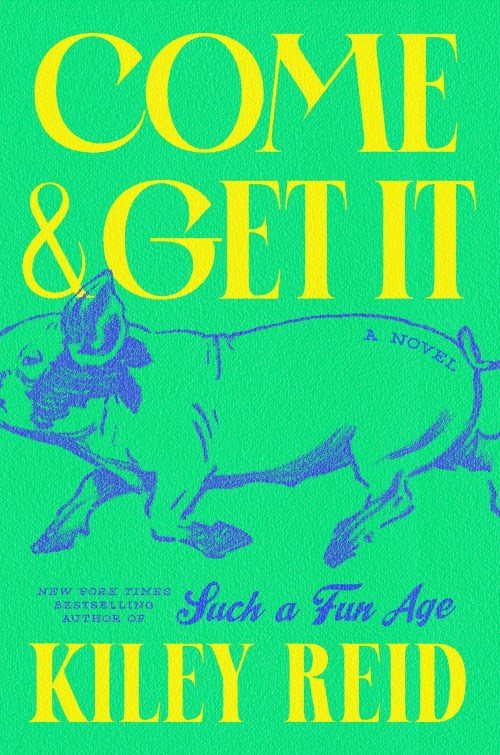[ad_1]
Kiley Reid’s first novel, Such a Fun Age, was a big deal. It was a New York Times Bestseller and a pick for Reese Witherspoon’s book club. It was praised by critics for its subtle insights into race and class, and longlisted for the 2020 Booker Prize. Lena Waithe acquired its television rights. Reid appeared on The Daily Show.
Still, most readers missed one of its main achievements; that is, the way its central character, Emira, builds a professional life and identity for herself as a caregiver. Most of the book’s reviews rightly noted that Emira was struggling to find her way amidst her friends, her employer, and her boyfriend, all of whom seem to have clearly defined professional ambitions. But Emira’s problem isn’t that she doesn’t have any ambition or talent, it’s that she feels lost because the world she lives in doesn’t value her talent as a brilliant babysitter for a 3-year-old named Briar. Emira’s main achievement in the novel is recognizing this talent in a world that devalues it and then using it to build a life for herself, even if that life is modest (she ends up as a government official’s administrative assistant), and even if everyone else—including her readers, it seems—wants her to be more entrepreneurial or “self-starting” (or whatever).
Reid’s new novel, Come and Get It, features another caregiver at its center. Millie Cousins is a 24-year-old RA in her “second senior year” at the University of Arkansas. She excels at creating themed bulletin boards for her dorm floor. She earnestly monitors her residents’ welfare, and dutifully makes herself available for on-call weekends. When she meets Collette, one of her fellow RA’s, Millie explains that she once worked as an innkeeper and that she loved the part of the job that required taking care of sick people. “So you’re like, nice nice,” Collette concludes. “Yeah,” Millie replies, “kind of.”
All the college students in Come and Get It speak like Millie and Collette in these quotes. People are “super busy” or “super depressed.” Millie frequently begins sentences with “Yeah, no…” Everyone says “like” all the time. In the novel’s opening scene, Agatha Paul, a 38-year-old writing professor, arrives at Millie’s dorm to interview three of her residents about weddings. Agatha is fascinated by the students and enjoys “letting their vernacular wash over her.” But she also wonders how she can “use” the interviews in her writing. As the novel progresses, Agatha and Millie’s relationship deepens and Agatha, who is white, wonders whether she’s using Millie, who is Black, for access to the students and insight into their lives. As with Emira’s white employer in Such a Fun Age, Agatha’s interest in “using” her student interviews or her relationship with Millie doesn’t make her a villain. It doesn’t even define her as white. It just makes her like everyone else in Reid’s novels who views human life primarily through an economic lens.
In her 2011 book Monoculture: How One Story Is Shaping Everything, Canadian writer F.S. Michaels argues that this economic lens—that is, seeing people mainly as “rational, self-interested, entrepreneurial individuals trying to satisfy wants”—has become essentially the only way of viewing human life in the 21st century. Reid has acknowledged Michaels’ book as an inspiration for one of the characters in Come and Get It, but I see it as an important backdrop for her work as a whole. Like Michaels, Reid’s novels are interested in recognizing the pervasiveness of this economic approach to life, exploring its consequences, and trying to think past it. If I had to suggest a single question that lies at the heart of Reid’s two novels to date, it might be “If our problems with race and class are rooted in a culture of domination and exploitation, will an ‘economic approach’ that pits people against each other be able to create new ways to move forward?” So far, Reid’s novels seem to be answering this question negatively.
In Such a Fun Age, Emira builds a life for herself as a fundamentally non-economic figure, but only after her relationships with her economically minded boyfriend and employer implode. In the new novel, Millie finds it even harder to escape or rely on her caregiving instincts to find her way in the world. Instead, she becomes entranced by Agatha’s veneer of decisiveness and begins neglecting her responsibilities as an RA, failing to check on a resident who was running away from a troubled past at another university. She hurts her friends and fellow RA’s when she gossips to Agatha about them and the gossip appears in print. She also jeopardizes her dream of owning a home, which she nurtures throughout the novel after one of her co-workers shows her a perfect 600-square-foot house that her uncle’s wife is planning to sell. In one of her last scenes in the novel, Millie feels like “her entire personality were leaving the pull of gravity” and wonders if she’ll be able to find herself again at some point in the future.
I think there’s hope for Millie. I didn’t finish Come and Get It feeling like it merely illustrated the impossibility of meaningful relationships (interracial or otherwise) in a culture dominated by competition. But I did finish it thinking that the novel felt looser and less focused than its predecessor, as though it struggled with the same feelings of groundlessness that plague Millie in its final pages. I also finished it looking forward to Kiley Reid’s next book, and another opportunity to think about important social issues from a welcome new angle.

FICTION
Come and Get It
by Kiley Reid
G.P. Putnam’s Sons
Published January 30th, 2024
[ad_2]
Source link

